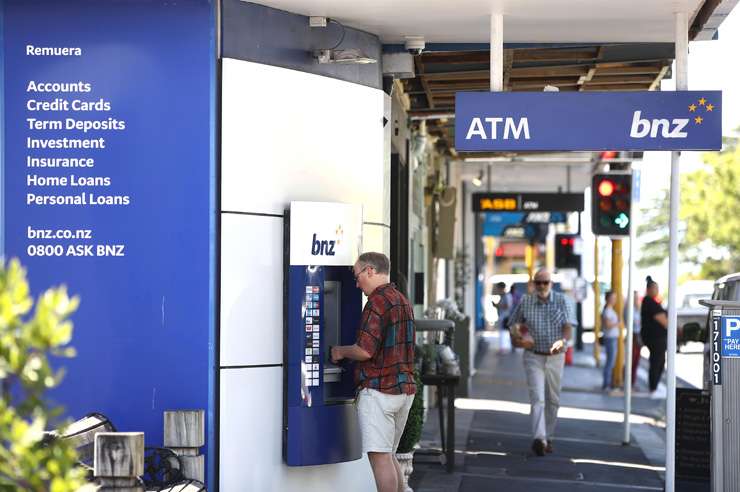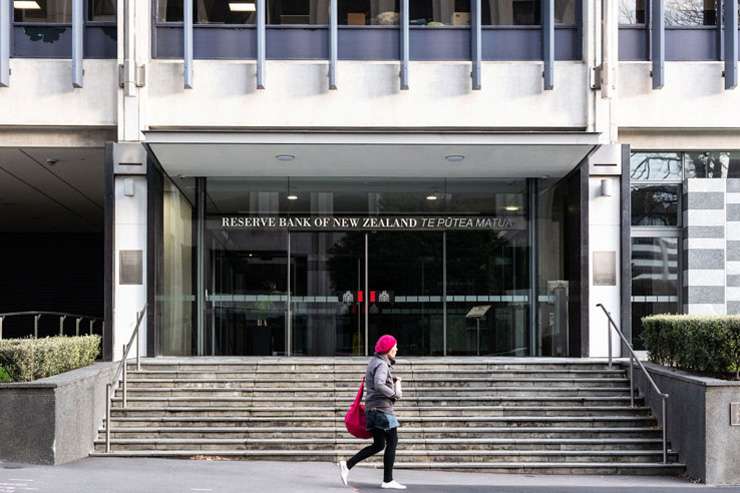Mortgage rates may edge up further in the months ahead but economists and mortgage brokers spoken to by OneRoof don’t expect big hikes from now on.
The Reserve Bank signalled in May it would not be lifting the Official Cash Rate further, leading to a premature expectation by homeowners that that was also the end of mortgage rate rises.
Since the May hiatus major banks have continued to put mortgage rates up, some more than once.
The OCR, however, is not the only factor in banks’ decisions to raise home loan rates. Global pressures are also at play, and when banks have to pay more for finance they charge more to lend it.
Start your property search
While no one spoken to expected further mortgage rate rises in New Zealand would be large, that was tempered by speculation the Reserve Bank may still end up lifting the OCR again depending on how stubborn inflation is.
The BNZ this week lifted mortgage rates for the second time since the Reserve Bank’s May announcement, raising its six-month rate from 7.85% to 7.99%, and its four and five-year rates from 6.89% to 7.09%.
Read more:
- Door knock a life-changer: ‘I’ve cried like 20 times. I don’t earn enough to pay the debt off’
- $150,000 hit to first-home buyer budgets as mortgage test rates rise above 9%
- Tony Alexander: Where buyers are in a panic about house prices
Mike Jones, the BNZ’s chief economist, told OneRoof wholesale interest rates, or swap rates, and bank funding costs are two key inputs into how mortgage rates are set.
“A swap rate is the wholesale interest rate and the mortgage rate is the retail rate.”
If wholesale rates go up that puts upward pressure on mortgage rates and vice versa, he says, and both wholesale interest rates and bank funding costs have been edging up.
While the Reserve Bank announcement to hold the OCR at 5.5% has some sway particularly over short-term wholesale interest rates, often the bigger driver of wholesale rates in New Zealand is offshore, and rates in large overseas markets have continued to rise reasonably noticeably, Jones says.
Central banks like the United States Federal Reserve have also continued to talk “relatively tough” about the chances of rates continuing to rise.
Jones says the expectation the Reserve Bank here may be dragged back to the rate hiking table, despite indicating they are done, has been baked into some of the wholesale rates as well.
Where things go from here depends on whether the Reserve Bank does raise the OCR again – although the BNZ’s view is it will not.
“We actually think mortgage rates are in the process of peaking at the moment but that obviously assumes the Reserve Bank doesn't have to lift the Official Cash Rate again this year and at some stage next year will begin cutting the Official Cash Rate.”
Any thoughts of mortgage rate falls, though, would have to see the Reserve Bank declare the war on inflation won, but he says there is still a lot of water still to go under the bridge.
“You can't necessarily rule out some further fine-tuning in mortgage rates but the big uptrend that's characterised the last 18 months or so is probably in the process of ending.”
Brad Olsen, chief economist and CEO for Infometrics, says the BNZ’s decision to raise the four and five-year rates is understandable as longer-term rates are not as heavily influenced by the OCR.
However, he says raising the six month rate is a puzzle, but banks make commercial decisions.
“The banks are wanting and needing to take into account their own cost of borrowing, how competitive the market might be, where everyone else's rates are sitting, how much more exposure they do or don't want on their mortgage book. There are a lot of factors if you look at it that go into it.”
And there is not always a one-to-one increase or decrease with mortgage rates when the OCR shifts, he says.
New Zealand’s challenge is that while the OCR is on hold, international rates are not to the same degree.

BNZ is the latest bank to lift its mortgage rates. Photo / Ted Baghurst

Infometrics CEO and chief economist Brad Olsen says that international rates are in flux. Photo / Jenny Ling
“There's still a lot of talk coming out of the US, for example, of how much further the Fed might have to go. The Reserve Bank of Australia has hit pause for the moment but, again, they could resume at their next meeting.”
The next RBNZ announcement, on August 16, is likely to keep the OCR at the current 5.5% rate, Olsen says, with a call otherwise not likely to be made until November.
Nick Tuffley, ASB’s chief economist, says rates are likely to “wobble around” depending on what’s happening with inflation.
“If we're getting news inflation's not really coming under control we may well see markets anticipating the New Zealand Reserve Bank will lift interest rates further and that's likely to start pushing rates up.”
Conversely, if it looks like inflation is coming under control, that would also start to flow through to lending deposit rates.
“The dust is starting to settle a little bit but it hasn't settled completely over where interest rates globally are ending up.”
Tuffley also expects the status quo to remain at the RBNZ’s next OCR announcement, but says markets are still likely to price in a risk and there could be a further hike this year.
“We’ve just got to be mindful it's not just about New Zealand, it's what's happening globally, and it's not just the OCR, because banks have got to make sure they can get hold of money both domestically and externally.”

The Reserve Bank of New Zealand headquarters in Wellington. Expectations are high that the RBNZ will keep the OCR at 5.5% on August 16. Photo / Getty Images

EasyStreet broker Gareth Veale says banks are open to solutions. Photo / Supplied
Mortgage broker Gareth Veale, from EasyStreet mortgages, says there is some good news for borrowers in that room for movement around rates is possible despite what banks’ advertise.
“There's a lot more wiggle room with the banks as to those rates at the moment, so what they've got advertised versus what they'll actually write the loan at is up for negotiation.”
He says while mortgage rates might go up a little more he thinks the story of massive increases has ended: “It might go up another half a percent and then go down, but going up 4%, that's over.”
A half a percent rise still further hurts the pocket, but Veale says if a small rise hurts so much people cannot afford their loan they need to do a stock take.
He says banks are acknowledging interest rates are high and are open to solutions. One option he is seeing people take up is refinancing to a longer-term loan period to get through this rough patch.
But he says not to be scared of further rate increases as they are likely to be marginal: “I don't think anyone in the world wants interest rates to be the way they are. If it continues then other things will have to change - incomes will have to go up, house prices will go down.”
Mortgage adviser Stephen Robertson, from My Money, says he would like to say mortgage rate rises are done and dusted but he does not think that is the case just yet.
“I've got lots of clients who are really not happy with the way that the banks just keep rising rates and rising rates and rising rates.
“I'm like, ‘well, yeah, but there's also bigger things happening’.”
Banks are not the bad guys in the sense they are a business and need to protect their margins, he says.
Robertson expects rates will begin to come back slowly around this time next year but says people wanting to buy a house should do their homework and if they can afford to buy should go ahead, saying for most people the purchase of a house is the foundation of their financial wealth.
“It’s a starting point for building equity and some sort of stability towards retirement.”
Use the search field to find out the best mortgage deals available today.

















































































